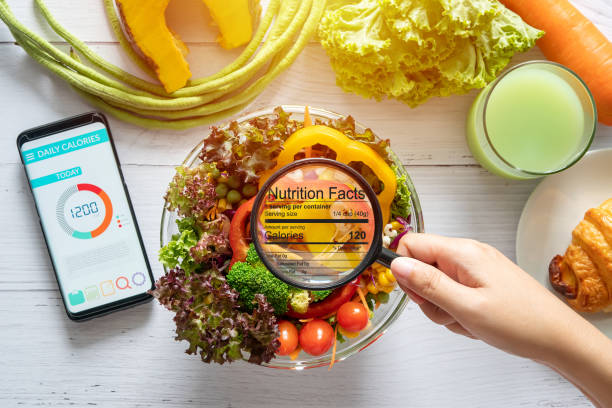- The Problem With Calorie Counting
- The Benefits of Eating Quality Foods
- The Best Foods to Eat for Weight Loss
- How Physical Activity Helps You Lose Weight
- How Your Mindset and Habits Affect Your Weight
- The Dangers of Fad Diets and Quick Fixes
- The Key to Sustainable Weight Loss
- Conclusion on How to lose weight without counting calories?
- FAQ on How to lose weight without counting calories?
If you are looking for a way to lose weight without counting calories, you are not alone. Many people find calorie counting tedious, stressful, and inaccurate. They want to enjoy their food without worrying about numbers and math. They want to eat healthily without feeling deprived or hungry. They want to lose weight without sacrificing their happiness or health.
Is that possible? Can you lose weight without counting calories?
The answer is yes. You can lose weight without counting calories if you follow some simple and effective principles. In this blog post, I will show you how to do that. I will explain why calorie counting is not the best method for weight loss, and what you should do instead.
I will share with you the benefits of eating quality foods, the best foods to eat for weight loss, the role of gut health in weight loss, the importance of physical activity, the power of mindset and habits, and the dangers of fad diets and quick fixes.
I will also give you some tips and tricks to help you achieve your weight loss goals in a sustainable and enjoyable way.
By the end of this blog post, you will have a clear and comprehensive guide on how to lose weight without counting calories. You will learn how to eat well, feel good, and look great. You will discover how to transform your body and your life with simple and smart choices.
Are you ready to start your weight loss journey? Let’s begin
The Problem With Calorie Counting
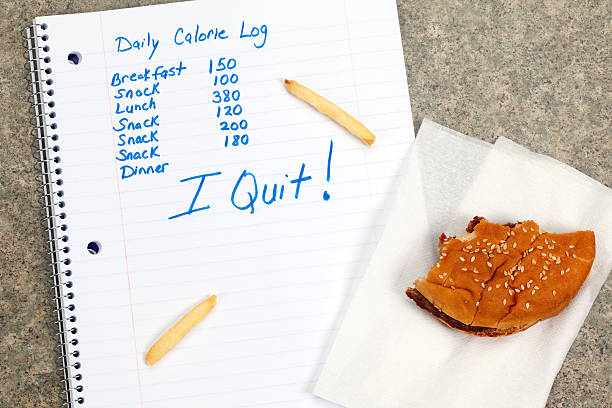
You may have heard that the key to weight loss is to eat less and move more. You may have been told that the only way to lose weight is to create a calorie deficit, which means burning more calories than you consume.
You may have been advised to count every calorie that goes into your mouth and track every calorie that you burn through exercise. You may have been convinced that calorie counting is the ultimate solution for weight loss.
But is it really?
The truth is, that calorie counting is not the best method for weight loss, and it can do more harm than good. Here are some of the reasons why calorie counting is not effective, and why you should lose weight without counting calories:
Calorie counting is inaccurate. It is very difficult to measure the exact amount of calories that you eat and burn. The calorie labels on food packages are often wrong, and the calorie calculators on fitness apps are often unreliable.
Even if you use a food scale and a heart rate monitor, you can still make errors and miss some factors that affect your calorie intake and expenditure, such as the type, quality, and preparation of food, the timing and frequency of meals, the thermic effect of food, the individual differences in metabolism, digestion, and absorption, and the environmental factors such as temperature, humidity, and altitude.
Calorie counting is stressful. It can make you obsessed with numbers and math, and take away the joy and pleasure of eating. It can make you feel guilty and anxious every time you eat something that is not in your calorie budget.
It can make you ignore your hunger and satiety signals, and force you to eat less or more than you need. It can make you develop an unhealthy relationship with food, and increase the risk of eating disorders, such as anorexia, bulimia, and binge eating.
Calorie counting is ineffective. It can lead to a plateau in weight loss, or even weight gain, in the long term. This is because your body adapts to the reduced calorie intake by lowering your metabolic rate, which means you burn fewer calories at rest and during activity.
It also increases your hunger hormones, which makes you crave more food and eat more calories. It also decreases your muscle mass, which reduces your calorie-burning capacity. It also causes hormonal imbalances, which affect your mood, energy, sleep, and appetite.
As you can see, calorie counting is not a reliable, enjoyable, or sustainable way to lose weight. It can cause more problems than it solves, and it can prevent you from achieving your weight loss goals.
That is why you should lose weight without counting calories, and focus on other factors that are more important and effective for weight loss.
The Benefits of Eating Quality Foods
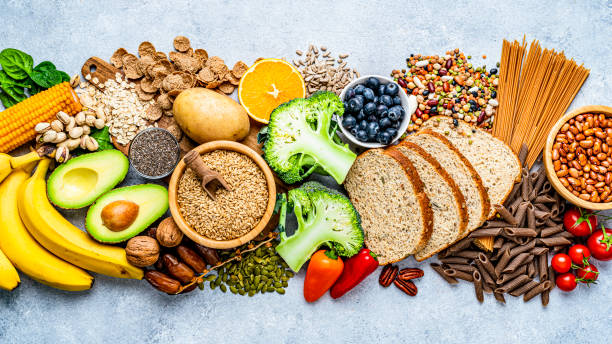
If you want to lose weight without counting calories, one of the most important things you need to do is to eat quality foods. Quality foods are foods that provide your body with the essential nutrients that it needs to function properly, while also being low in calories and easy to digest.
Quality foods can help you lose weight without counting calories by making you feel full, satisfied, and nourished, and by supporting your metabolism, immunity, and health.
But what are the benefits of eating quality foods? How do they help you lose weight and improve your well-being? Here are some of the benefits of eating quality foods:
Quality foods help you control your appetite. Quality foods are filling and satisfying because they contain fiber, protein, healthy fats, and water, which add bulk and volume to your food and make you feel full and satisfied.
These nutrients also slow down the digestion and absorption of food, which keeps you full and energized for longer. They also help regulate your hunger and satiety hormones, such as ghrelin, leptin, and peptide YY, which signal your brain when to eat and when to stop.
By eating quality foods, you can naturally control your calorie intake, without counting calories or feeling hungry.
Quality foods help you boost your metabolism. Quality foods are rich in nutrients that help your body function optimally and increase your metabolic rate, which is the number of calories your body burns at rest and during activity.
For example, protein has a high thermic effect, which means it requires more energy to digest and absorb than other macronutrients. Fiber helps regulate your blood sugar and insulin levels, which prevents fat storage and promotes fat burning.
Healthy fats help balance your hormones and support your thyroid, which regulates your metabolism. Micronutrients help activate enzymes and hormones that are involved in energy production and utilization.
Quality foods help you improve your health. Quality foods are not only good for your weight, but also for your overall health. They provide your body with the essential nutrients that it needs to function properly, prevent diseases, and heal itself.
They also protect your cells from oxidative stress and inflammation, which are the root causes of many chronic conditions, such as diabetes, heart disease, cancer, and aging.
By eating quality foods, you can improve your immune system, lower your blood pressure and cholesterol, balance your blood sugar and insulin, enhance your cognitive function and mood, and increase your longevity.
Here is a table that shows some examples of quality foods that you can eat for weight loss, and their nutritional values per 100 grams:
| Food | Calories | Protein | Fiber | Fat | Carbs |
|---|---|---|---|---|---|
| Egg | 155 | 13 g | 0 g | 11 g | 1 g |
| Chicken | 239 | 27 g | 0 g | 14 g | 0 g |
| Salmon | 208 | 20 g | 0 g | 13 g | 0 g |
| Yogurt | 59 | 4 g | 0 g | 0.4 g | 7 g |
| Spinach | 23 | 3 g | 2 g | 0.4 g | 4 g |
| Broccoli | 34 | 3 g | 3 g | 0.4 g | 7 g |
| Carrot | 41 | 1 g | 3 g | 0.2 g | 10 g |
| Apple | 52 | 0.3 g | 2 g | 0.2 g | 14 g |
| Banana | 89 | 1 g | 3 g | 0.3 g | 23 g |
| Oatmeal | 68 | 2 g | 2 g | 1 g | 12 g |
| Brown Rice | 111 | 2 g | 2 g | 1 g | 23 g |
| Almond | 579 | 21 g | 12 g | 50 g | 22 g |
| Sunflower Seed | 584 | 21 g | 9 g | 51 g | 20 g |
As you can see, eating quality foods has many benefits for your weight loss and well-being. It is a simple and effective way to lose weight without counting calories and to enjoy your food and your life.
In the next section, I will show you some examples of quality foods that you can eat for weight loss, and how to incorporate them into your daily diet.
The Best Foods to Eat for Weight Loss
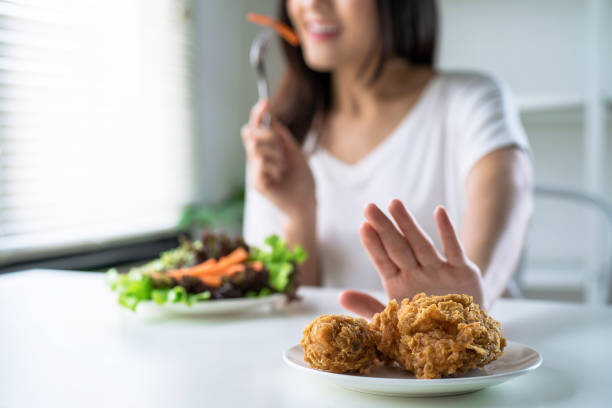
One of the most effective ways to lose weight without counting calories is to eat quality foods that are high in nutrients, low in calories, and easy to digest. Quality foods can help you boost your metabolism, reduce your appetite, and improve your health. They can also make your meals and snacks more enjoyable and satisfying.
But what are the best foods to eat for weight loss? Many foods can help you lose weight without counting calories, but some are more beneficial than others. In this section, I will show you some examples of the best foods to eat for weight loss, and how to include them in your daily diet.
Protein-Rich Foods
Protein is the most important macronutrient for weight loss, because it has a high thermic effect, which means it requires more energy to digest and absorb than other macronutrients.
Protein also helps you build and maintain muscle mass, which increases your calorie-burning capacity. Protein also helps you feel full and satisfied and reduces your hunger and cravings.
Some of the best protein-rich foods to eat for weight loss are:
Eggs: Eggs are a complete protein source, which means they contain all nine essential amino acids that your body cannot produce.
Eggs are also high in healthy fats, choline, and biotin, which are good for your metabolism, brain, and hair. Eggs are also versatile and easy to prepare and can be eaten for breakfast, lunch, or dinner.
Lean Meats: Lean meats, such as chicken, turkey, beef, and pork, are high in protein, iron, zinc, and B vitamins, which are essential for your energy, immunity, and metabolism. Lean meats are also low in calories and fat and can be cooked in various ways, such as grilled, baked, or roasted.
Fish and Seafood: Fish and seafood are high in protein, omega-3 fatty acids, iodine, and selenium, which are good for your heart, brain, thyroid, and skin. Fish and seafood are also low in calories and mercury, and can be eaten raw, cooked, or canned.
Dairy Products: Dairy products, such as milk, yogurt, cheese, and cottage cheese, are high in protein, calcium, phosphorus, and vitamin D, which are good for your bones, teeth, and muscles.
Dairy products are also high in probiotics, which are beneficial for your gut health and weight loss. Dairy products are also delicious and can be eaten as a snack, dessert, or ingredient in recipes.
Here is a table that shows how much protein you should eat per meal, depending on your weight and activity level:
| Weight (kg) | Activity Level | Protein per Meal (g) |
|---|---|---|
| 50 | Low | 15-20 |
| 50 | Moderate | 20-25 |
| 50 | High | 25-30 |
| 75 | Low | 20-25 |
| 75 | Moderate | 25-30 |
| 75 | High | 30-35 |
| 100 | Low | 25-30 |
| 100 | Moderate | 30-35 |
| 100 | High | 35-40 |
Fiber-Rich Foods
Fiber is another important nutrient for weight loss, because it adds bulk and volume to your food, which makes you feel full and satisfied. Fiber slows down the digestion and absorption of food, which keeps your blood sugar and insulin levels stable and prevents fat storage and hunger spikes.
Fiber also helps you improve your digestion, lower your cholesterol, and prevent constipation and colon cancer.
Some of the best fiber-rich foods to eat for weight loss are:
Vegetables: Vegetables are low in calories, high in fiber, and rich in vitamins, minerals, antioxidants, and phytochemicals. Vegetables can help you improve your health, prevent diseases, and add color, flavor, and texture to your meals and snacks.
You should aim to eat at least five servings of vegetables per day and choose a variety of colors and types, such as leafy greens, cruciferous vegetables, root vegetables, and legumes.
Fruits: Fruits are low in calories, high in fiber, and rich in vitamins, minerals, antioxidants, and phytochemicals. Fruits can help you boost your immune system, lower your blood pressure, and protect your cells from oxidative stress and inflammation.
Fruits can also satisfy your sweet tooth and can be eaten fresh, dried, frozen, or juiced.
Whole Grains: Whole grains are high in fiber, complex carbohydrates, and phytochemicals. Whole grains can help you regulate your blood sugar and insulin levels, lower your cholesterol, and prevent diabetes and heart disease. Whole grains can also provide you with energy and can be eaten as cereals, breads, pasta, or rice.
Nuts and Seeds: Nuts and seeds are high in fiber, healthy fats, protein, and micronutrients, such as magnesium, zinc, and selenium. Nuts and seeds can help you improve your metabolism, balance your hormones, and support your thyroid.
Nuts and seeds can also curb your appetite and can be eaten as a snack, or added to salads, smoothies, or baked goods.
Here is a table that shows how much fiber you should eat per day, depending on your age and gender:
| Age (years) | Gender | Fiber per Day (g) |
|---|---|---|
| 1-3 | Both | 14 |
| 4-8 | Both | 16-20 |
| 9-13 | Male | 25-31 |
| 9-13 | Female | 22-26 |
| 14-18 | Male | 30-38 |
| 14-18 | Female | 25-29 |
| 19-50 | Male | 30-38 |
| 19-50 | Female | 25-29 |
| 51+ | Male | 28-34 |
| 51+ | Female | 22-28 |
How Physical Activity Helps You Lose Weight

Another key factor in your ability to lose weight without counting calories is physical activity. Physical activity is any movement that makes your muscles work and requires your body to burn calories.
Physical activity can help you lose weight and keep it off by increasing your energy expenditure, improving your muscle mass, and enhancing your metabolism.
The Importance of Physical Activity
Physical activity can help you lose weight without counting calories in several ways:
Physical activity burns calories. The more intense, longer, and more frequent your physical activity, the more calories you burn. For example, jogging for 30 minutes can burn about 300 calories, while walking for the same duration can burn about 150 calories.
By burning more calories than you consume, you create a calorie deficit that results in weight loss.
Physical activity builds muscle. Muscle is more metabolically active than fat, which means it burns more calories at rest and during activity. By increasing your muscle mass, you increase your resting metabolic rate, which is the number of calories your body burns while doing nothing.
For example, one pound of muscle can burn about 6 calories per day, while one pound of fat can burn about 2 calories per day. By building more muscle, you increase your calorie-burning capacity and lose weight without counting calories.
Physical activity boosts your metabolism. Metabolism is the process by which your body converts food into energy. Physical activity can increase your metabolism by stimulating the production of hormones and enzymes that are involved in energy production and utilization.
For example, physical activity can increase your levels of adrenaline, noradrenaline, and growth hormone, which can increase your fat-burning and muscle-building. By boosting your metabolism, you increase your energy output and lose weight without counting calories.
How Much Physical Activity Do You Need
The amount of physical activity you need to lose weight without counting calories depends on several factors, such as your age, weight, height, gender, health status, and fitness level.
However, as a general guideline, you can follow the recommendations of the U.S. Department of Health and Human Services, which are:
For adults: Get at least 150 minutes of moderate-intensity aerobic activity or, 75 minutes of vigorous-intensity aerobic activity per week, or a combination of both.
You can also do strength training exercises for all major muscle groups at least twice a week. You may need to do more physical activity to lose weight or maintain weight loss.
For children and adolescents: Get at least 60 minutes of moderate- to vigorous-intensity physical activity per day, including aerobic, muscle-strengthening, and bone-strengthening activities. You may need to do more physical activity to lose weight or maintain weight loss.
Here is a table that shows the examples of moderate- and vigorous-intensity physical activities:
| Moderate-Intensity Physical Activities | Vigorous-Intensity Physical Activities |
|---|---|
| Walking briskly | Running or jogging |
| Biking at a casual pace | Biking fast or uphill |
| Swimming leisurely | Swimming laps |
| Dancing | Aerobics |
| Golfing | Tennis |
| Gardening | Hiking |
How Your Mindset and Habits Affect Your Weight
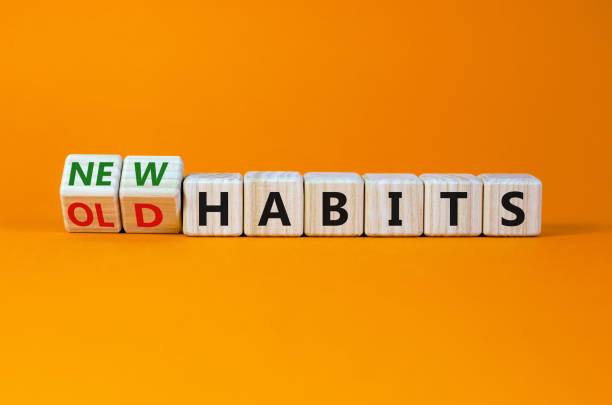
Your mindset and habits are also crucial for your ability to lose weight without counting calories. Your mindset is the way you think and feel about yourself, your food, and your weight.
Your habits are the actions and behaviors that you repeat regularly and automatically.
Your mindset and habits can either help you or hinder you in your weight loss journey.
The Power of Mindset and Habits
Your mindset and habits can affect your weight in several ways:
Your mindset and habits influence your motivation and commitment. Your motivation is the reason why you want to lose weight, and your commitment is the degree to which you stick to your plan. Your mindset and habits can either boost or lower your motivation and commitment.
For example, if you have a positive and optimistic mindset, and you have habits that support your goals, such as setting reminders, tracking your progress, and rewarding yourself, you are more likely to stay motivated and committed.
On the other hand, if you have a negative and pessimistic mindset, and you have habits that sabotage your goals, such as skipping meals, binge eating, and criticizing yourself, you are more likely to lose motivation and commitment.
Your mindset and habits influence your choices and actions. Your choices and actions are the decisions and behaviors that you make and do every day that affect your weight. Your mindset and habits can either guide or mislead your choices and actions.
For example, if you have a flexible and realistic mindset, and you have habits that help you make healthy choices, such as planning your meals, reading nutrition labels, and listening to your hunger and satiety cues, you are more likely to choose and act in ways that help you lose weight without counting calories.
On the other hand, if you have a rigid and perfectionist mindset, and you have habits that make you choose poorly, such as following fad diets, restricting your food intake, and ignoring your body signals, you are more likely to choose and act in ways that hinder your weight loss or cause weight regain.
Your mindset and habits influence your emotions and reactions. Your emotions and reactions are the feelings and responses that you experience and express in relation to your weight loss. Your mindset and habits can either regulate or aggravate your emotions and reactions.
On the other hand, if you have a fragile and fixed mindset, and you have habits that worsen your stress and challenges, such as blaming yourself, comparing yourself to others, and giving up easily, you are more likely to experience and express negative emotions and reactions, such as anger, frustration, guilt, shame, and depression.
How to Improve Your Mindset and Habits for Weight Loss
As you can see, your mindset and habits are key factors in your ability to lose weight without counting calories. Therefore, it is important to improve your mindset and habits and make them more supportive and conducive to your weight loss.
Here are some tips on how to improve your mindset and habits for weight loss:
Cultivate a growth mindset. A growth mindset is the belief that you can change and improve your abilities and outcomes through effort and learning.
A growth mindset can help you lose weight without counting calories by making you more open to feedback, more willing to try new things, more persistent in overcoming obstacles, and more confident in your potential. To cultivate a growth mindset, you can do the following:
Replace fixed statements with growth statements. For example, instead of saying “I can’t lose weight”, say “I can learn how to lose weight”. Instead of saying “I’m bad at cooking”, say “I can improve my cooking skills”.
Embrace challenges and failures as opportunities to learn and grow. For example, instead of avoiding difficult tasks or giving up after a setback, face them head-on and analyze what you can do better next time.
Seek feedback and advice from others who have achieved what you want to achieve. For example, instead of feeling intimidated or jealous of someone who has lost weight successfully, ask them for tips and guidance on how to do the same.
Create and maintain healthy habits. Healthy habits are actions and behaviors that you repeat regularly and automatically that help you lose weight without counting calories.
Healthy habits can make your weight loss easier and more enjoyable by reducing the need for conscious decision-making, increasing your consistency and efficiency, and enhancing your satisfaction and well-being. To create and maintain healthy habits, you can do the following:
Identify the habits that you want to change or adopt. For example, you may want to stop snacking on junk food or start drinking more water.
Use the habit loop to create new habits or replace old ones. The habit loop consists of three elements: a cue, a routine, and a reward. A cue is a trigger that initiates the habit, such as a time, a place, or a feeling. A routine is the action or behavior that you perform in response to the cue, such as eating or drinking.
A reward is the benefit or pleasure that you get from the routine, such as satisfaction or relief. To create a new habit or replace an old one, you need to choose a cue, a routine, and a reward that are aligned with your goal.
For example, if you want to drink more water, you can use the following habit loop: Cue: Every time you feel thirsty or hungry. Routine: Drink a glass of water. Reward: Feel refreshed and hydrated.
Repeat the habit loop until it becomes automatic and effortless. This may take from a few days to a few months, depending on the complexity and difficulty of the habit. To make the habit loop more effective, you can do the following:
Make the cue obvious and visible. For example, if you want to drink more water, you can place a water bottle on your desk, or set a reminder on your phone.
Make the routine easy and simple. For example, if you want to drink more water, you can fill up your water bottle in advance, or use a water filter or dispenser.
Make the reward immediate and satisfying. For example, if you want to drink more water, you can add some lemon or cucumber slices to your water, or use a straw or a cup that you like.
As you can see, your mindset and habits are powerful tools that can help you lose weight without counting calories. They can help you stay motivated and committed, make healthy choices and actions, and manage your emotions and reactions.
Therefore, it is important to improve your mindset and habits and make them more positive and productive. In the next section, I will show you how to avoid the dangers of fad diets and quick fixes that can sabotage your weight loss.
The Dangers of Fad Diets and Quick Fixes
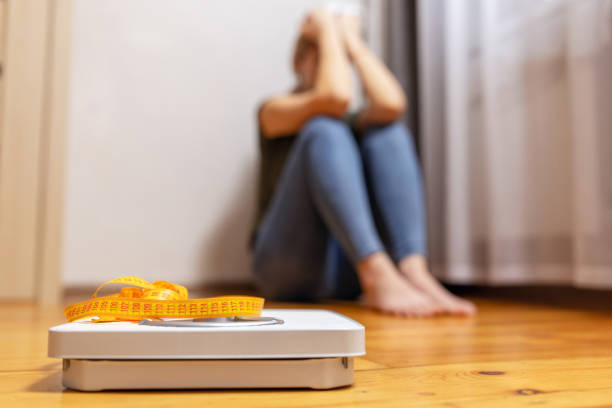
If you are looking for a way to lose weight without counting calories, you may be tempted by the many fad diets and quick fixes that promise rapid and dramatic results.
These are eating plans that often claim to have a secret or a magic formula that can make you lose weight fast, and easy.
They may also promote certain foods, supplements, or devices that are supposed to boost your metabolism, burn fat, or detoxify your body.
However, these fad diets and quick fixes are not only ineffective but also dangerous for your health and well-being. Here are some of the dangers of fad diets and quick fixes:
They are nutritionally unbalanced. Fad diets and quick fixes often eliminate or severely restrict whole food groups or nutrients, such as carbohydrates, fats, proteins, vitamins, minerals, or fiber.
This can lead to nutritional deficiencies, which can cause various health problems, such as anemia, osteoporosis, scurvy, or beriberi.
For example, the keto diet, which is a very low-carb, high-fat diet, can cause a lack of vitamin C, which can result in bleeding gums, poor wound healing, and an increased risk of infections1.
They are unsustainable. Fad diets and quick fixes are often too restrictive, too complicated, or too expensive to follow for a long time. They can also be boring, bland, or unappealing, which can make you lose interest and motivation.
They can also be socially isolating, as they may prevent you from enjoying meals with your family and friends. As a result, you may not be able to stick to them, and you may end up regaining the weight you lost, or even more. This can create a cycle of yo-yo dieting, which can harm your metabolism, hormones, and mental health.
They are harmful to your physical and mental health. Fad diets and quick fixes can cause various physical and mental health issues, such as dehydration, electrolyte imbalance, kidney damage, liver damage, gallstones, muscle loss, hair loss, fatigue, headaches, nausea, constipation, diarrhea, mood swings, depression, anxiety, low self-esteem, and eating disorders.
For example, the Master Cleanse, which is a liquid-only diet that consists of lemon juice, maple syrup, cayenne pepper, and water, can cause severe dehydration, electrolyte imbalance, and kidney damage2.
As you can see, fad diets and quick fixes are not the answer to lose weight without counting calories. They can do more harm than good, and they can prevent you from achieving your weight loss goals and improving your well-being.
The Key to Sustainable Weight Loss

You have learned a lot about how to lose weight without counting calories in this blog post. You have learned why calorie counting is not the best method for weight loss, and what you should do instead.
You have discovered the benefits of eating quality foods, the best foods to eat for weight loss, the role of gut health in weight loss, the importance of physical activity, the power of mindset and habits, and the dangers of fad diets and quick fixes.
But what is the key to lose weight without counting calories and keeping it off for good?
The key to sustainable weight loss is to make simple and smart changes that you can maintain for life. It is not about following a strict or extreme diet that you cannot stick to or relying on a magic pill or device that does not work.
It is about finding a balance between eating well, moving more, and enjoying your life.
Here are some tips on how to find and keep that balance:
Eat mindfully. Eating mindfully means paying attention to what, when, why, and how you eat. It means listening to your body’s signals of hunger and satiety and eating accordingly.
It means choosing foods that nourish your body and satisfy your taste buds, and eating them with pleasure and gratitude. It means avoiding distractions, such as TV, phone, or computer, while eating, and focusing on the food and the experience.
Eating mindfully can help you lose weight without counting calories by making you more aware of your food intake, more in tune with your body’s needs, and more appreciative of your food and your life.
Move joyfully. Moving joyfully means being physically active in ways that you enjoy and that suit your preferences and abilities.
It means finding activities that make you happy and that challenge you. It means setting realistic and specific goals and celebrating your progress. It means being consistent and flexible and adapting to your circumstances.
Moving joyfully can help you lose weight without counting calories by increasing your energy expenditure, improving your muscle mass, and enhancing your metabolism. It can also help you improve your health, mood, and quality of life.
Live fully. Living fully means embracing and enjoying all aspects of your life, not just your weight loss. It means finding and pursuing your passions and purposes and expressing your creativity and talents.
It means connecting and communicating with your family and friends and supporting and learning from each other. It means taking care of your physical and mental health, and seeking help when you need it.
It means being kind and compassionate to yourself and others and accepting and appreciating yourself and others. Living fully can help you lose weight without counting calories by making you more motivated and committed, more positive and productive, and more satisfied and fulfilled.
As you can see, the key to sustainable weight loss is to make simple and innovative changes that you can maintain for life. It is to eat mindfully, move joyfully, and live fully.
It is to lose weight without counting calories and to enjoy your food and your life. By following this key, you can achieve your weight loss goals and improve your well-being.
Conclusion on How to lose weight without counting calories?
You have reached the end of this blog post, and I hope you have learned a lot about how to lose weight without counting calories. In this blog post, I have shown you why calorie counting is not the best method for weight loss, and what you should do instead.
By following the tips and tricks that I have given you in this blog post, you can lose weight without counting calories, and enjoy your food and your life.
You can achieve your weight loss goals and improve your well-being. You can transform your body and your life with simple and smart choices.
I hope you have found this blog post helpful and informative. If you have any questions, comments, or feedback, please feel free to leave them below. I would love to hear from you and help you in any way I can.
Thank you for reading this blog post, and I wish you all the best in your weight loss journey. Remember, you can lose weight without counting calories, and you can do it! 😊
FAQ on How to lose weight without counting calories?
Here are some frequently asked questions about how to lose weight without counting calories, and their answers:
Q: What is the best way to measure my weight loss progress without counting calories?
A: The best way to measure your weight loss progress is to use a combination of different methods, such as weighing yourself, taking body measurements, tracking your body fat percentage, and noticing how your clothes fit.
You can also use other indicators of your health and well-being, such as your energy levels, your mood, your sleep quality, and your blood pressure and cholesterol levels. You should not rely on a single method, as it may not reflect the whole picture of your weight loss.
You should also not obsess over the numbers, as they may fluctuate due to various factors, such as water retention, hormonal changes, or muscle gain. You should focus on the long-term trends and the overall improvements in your health and well-being.
Q: How can I eat less without feeling hungry or deprived?
A: You can eat less without feeling hungry or deprived by choosing foods that are high in nutrients, low in calories, and easy to digest. These foods can help you feel full and satisfied, and provide your body with the essential nutrients that it needs to function properly.
Some examples of these foods are eggs, lean meats, fish, dairy products, vegetables, fruits, whole grains, nuts, and seeds. You can also eat less by eating mindfully, which means paying attention to what, when, why, and how you eat. You can eat mindfully by listening to your body’s signals of hunger and satiety and eating accordingly.
You can also eat mindfully by choosing foods that nourish your body and satisfy your taste buds, and eating them with pleasure and gratitude. You can also eat mindfully by avoiding distractions, such as TV, phone, or computer, while eating, and focusing on the food and the experience.
Q: How can I increase my physical activity without spending too much time or money?
A: You can increase your physical activity without spending too much time or money by finding activities that you enjoy and that suit your preferences and abilities.
You can find activities that make you happy and that challenge you. You can also find activities that fit your schedule and your budget. Some examples of physical activities that you can do without spending too much time or money are walking, jogging, cycling, swimming, dancing, gardening, or playing with your kids or pets.
You can also increase your physical activity by making it a part of your daily routine. You can make it a habit and a priority. You can also find ways to incorporate physical activity into your daily activities, such as taking the stairs, parking farther, or walking the dog.

